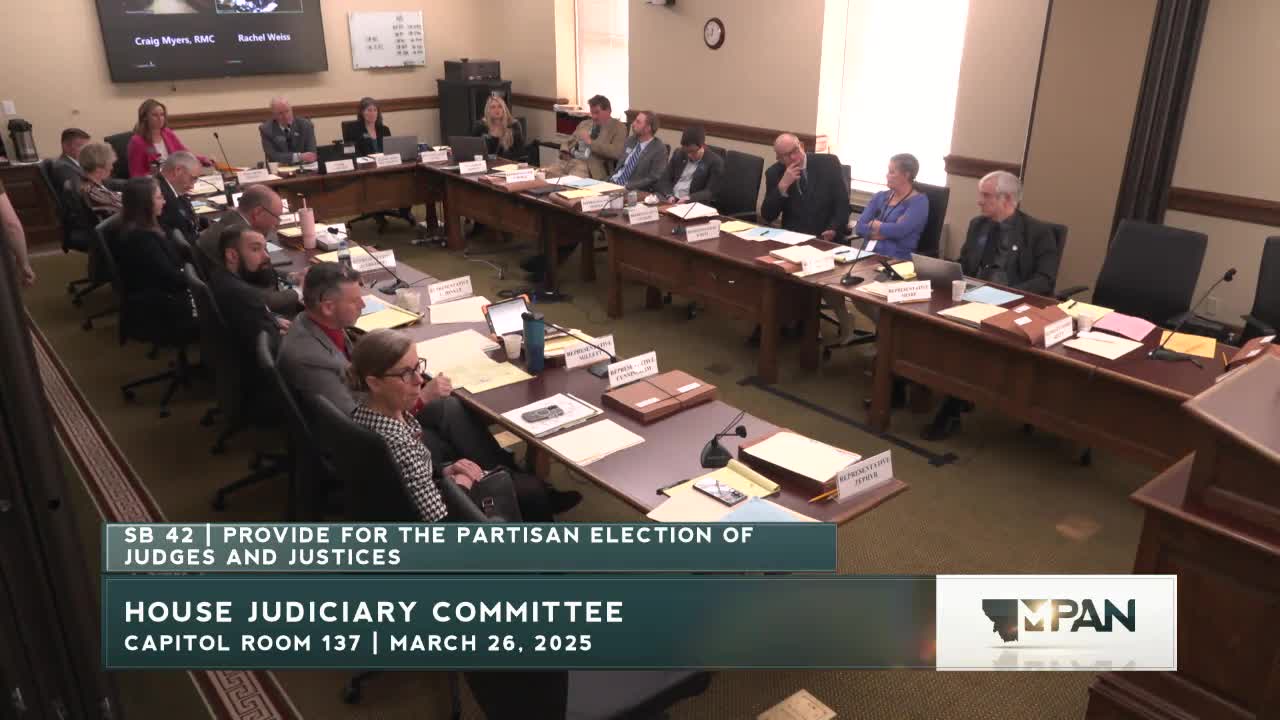Committee considers bill barring government purchase of commercial location and communications data without warrant
Get AI-powered insights, summaries, and transcripts
Subscribe
Summary
Senate Bill 282 would prohibit state and local governments from acquiring certain commercial location, communications and pseudonymous data without a warrant or investigative subpoena; civil‑liberties groups backed the measure and law‑enforcement and industry witnesses sought narrowly tailored exceptions.
Senate Bill 2 82 would bar government entities from purchasing certain categories of commercially held electronic communications, precise geolocation information and pseudonymous data unless the government first obtains a search warrant or investigative subpoena.
Sponsor Sen. Daniel Emrich said the bill aims to prevent government circumvention of Fourth Amendment protections by purchasing data that can reveal individuals’ movements or communications patterns. “If there is a reason to get a warrant and you can get around that by purchasing it, you can't do it,” he said.
The ACLU of Montana rose in support, arguing that data brokers now collect and sell location and behavioral data that governments can use to track people without judicial oversight. Henry Seaton said the bill is bipartisan, protects privacy, and aligns with federal efforts to modernize Fourth Amendment protections.
Restore the Fourth, a national privacy group, supported the bill as a guardrail against warrantless access to commercial data, urging lawmakers that “if the government wants the pattern of your movements in public, they should get a warrant.”
Industry and law‑enforcement witnesses offered targeted concerns and asked for amendments. The Montana Sheriffs and Peace Officers Association supported the bill’s core prohibitions but opposed a statutory repeal in the draft that would remove an existing emergency voluntary‑disclosure exception. The sheriffs’ association warned that a wholesale repeal could prevent rapid voluntary disclosures in crises such as kidnappings or imminent threats.
Representatives of the consumer‑data industry and TechNet asked the committee to narrow definitions in the bill so that routine government contracts that use pseudonymous or transactional data for fraud prevention, digital‑identity verification or program administration would not be unintentionally barred.
Committee members asked about emergency exceptions, use of device‑tracking in child‑safety incidents, and how the bill would affect vendor services such as fraud detection and digital identity verification. The sponsor agreed to remove the repealer provision after questions clarified its potential effects on emergencies and consent disclosures.
No formal vote was taken at the hearing; the committee closed testimony after proponents, opponents and informational witnesses presented.
